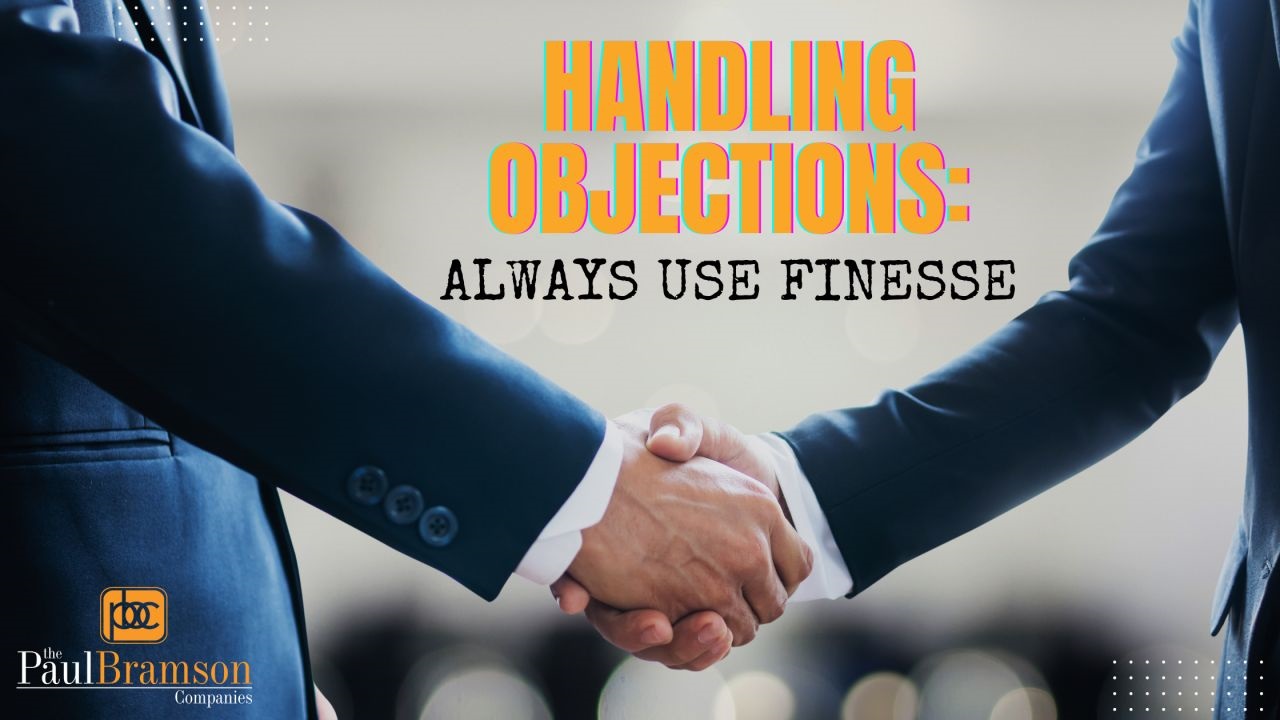Just like athletes prepare for challenges they may face during a game, sales professionals must be ready with effective responses when encountering objections. Unfortunately, many people don’t see the importance of how you navigate objections until they are in the moment and struggling for what to do next,
In my 25 years of experience in sales, I’ve noticed that less than 1% of salespeople can swiftly and effectively respond to objections, while the remaining 99% take it personally, stumble, and often give up.
Here are my top tips for handling objections in sales:
1. An objection isn’t necessarily a “no”
In sales, objections are an opportunity to dig deeper and understand the person’s concerns or needs, so it’s crucial to be able to differentiate between an objection and a solid “no.” For instance, when someone says, “right now is not a good time,” it’s not necessarily a no — ask further questions and find out what’s holding them back. By understanding their objections or underlying needs, you can engage in a meaningful dialogue, explore potential alternatives, and identify next steps to be proactive and move the opportunity forward.
2. Know their underlying needs
Take the time to understand the person’s underlying needs by asking the right questions. By gaining insight into their motivations and challenges, you can tailor your approach and present solutions that align with what you know will resonate with them.
3. Don’t take it personally
Objections and rejection are a natural part of the sales process, so avoid taking it personally and maintain a positive mindset. In the moment, use the tactics you have to navigate the conversation for the best possible outcome. If it’s a full stop, “no,” use this as a growth opportunity. What worked in the conversation, what didn’t? What could you do differently next time? Your growth and learning is the personal aspect.
4. Practice
Prepare yourself by role-playing different objection scenarios with colleagues or mentors. Simulating challenging situations will improve your ability to respond confidently and effectively when faced with an objection.
Remember that “no” doesn’t have to be the end of the conversation, but rather an invitation to explore further and find a mutually beneficial solution or alternative. By adopting this mindset and implementing these tips, you can transform objections into successes in your sales pursuits. Fill out our contact form to get in touch and schedule a training session!

Paul Bramson is renowned as a powerhouse on keynote stages and in training arenas. He is widely regarded as being one of the most impactful speakers, trainers and C-suite coaches in the world today. Paul is recognized as a leading authority and thought leader in the areas of communication, leadership and sales boasting media mentions in Forbes, Fast Company, Fortune, BuiltIn, Yahoo, and MSN. With an extensive 25-year tenure, Paul has continually ignited and empowered professionals, leaders, and teams across all echelons. His ability to captivate and engage audiences originates from an authentic zeal, unique aptitudes, and an unyielding dedication to professional and personal enhancement.

